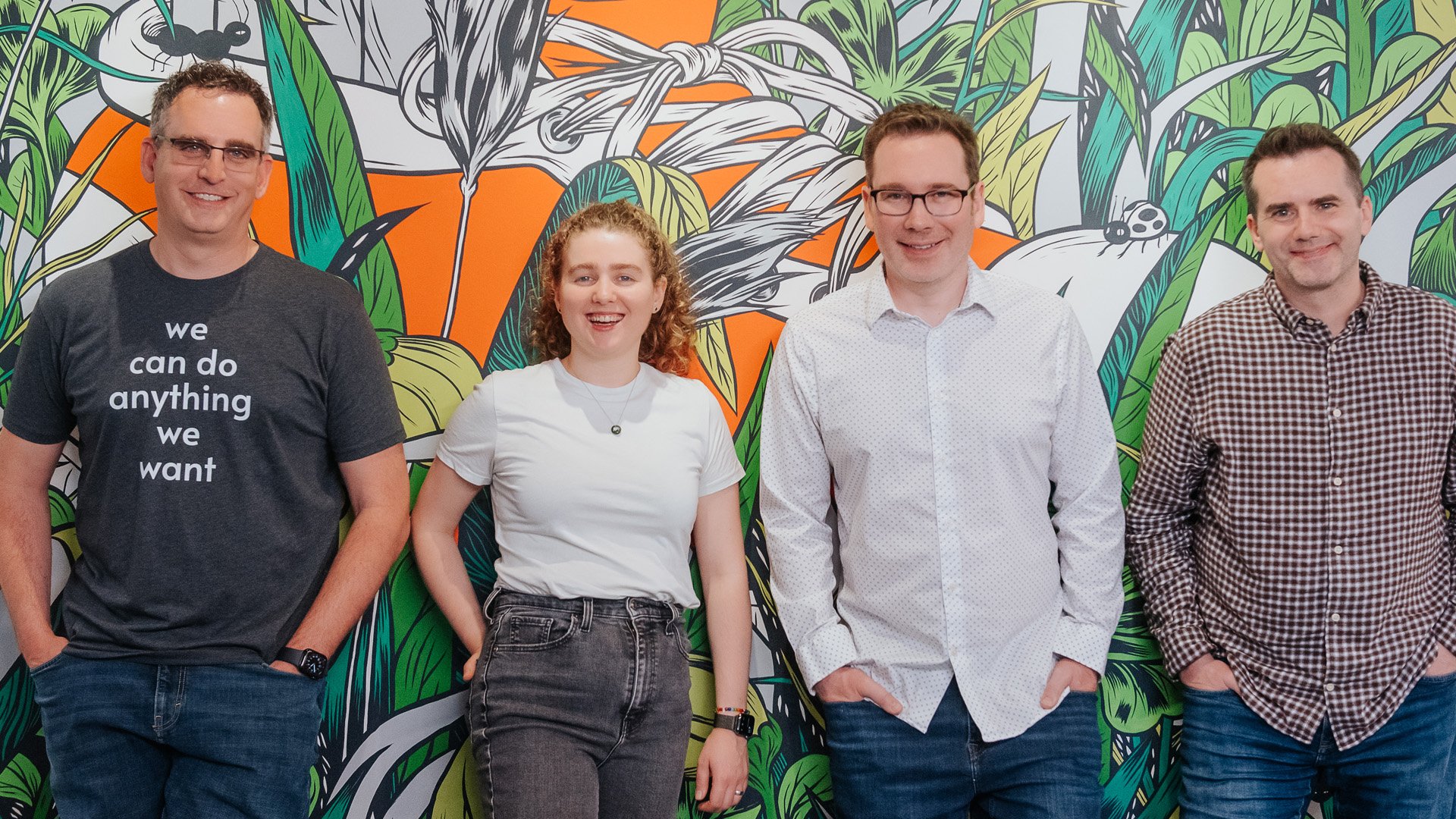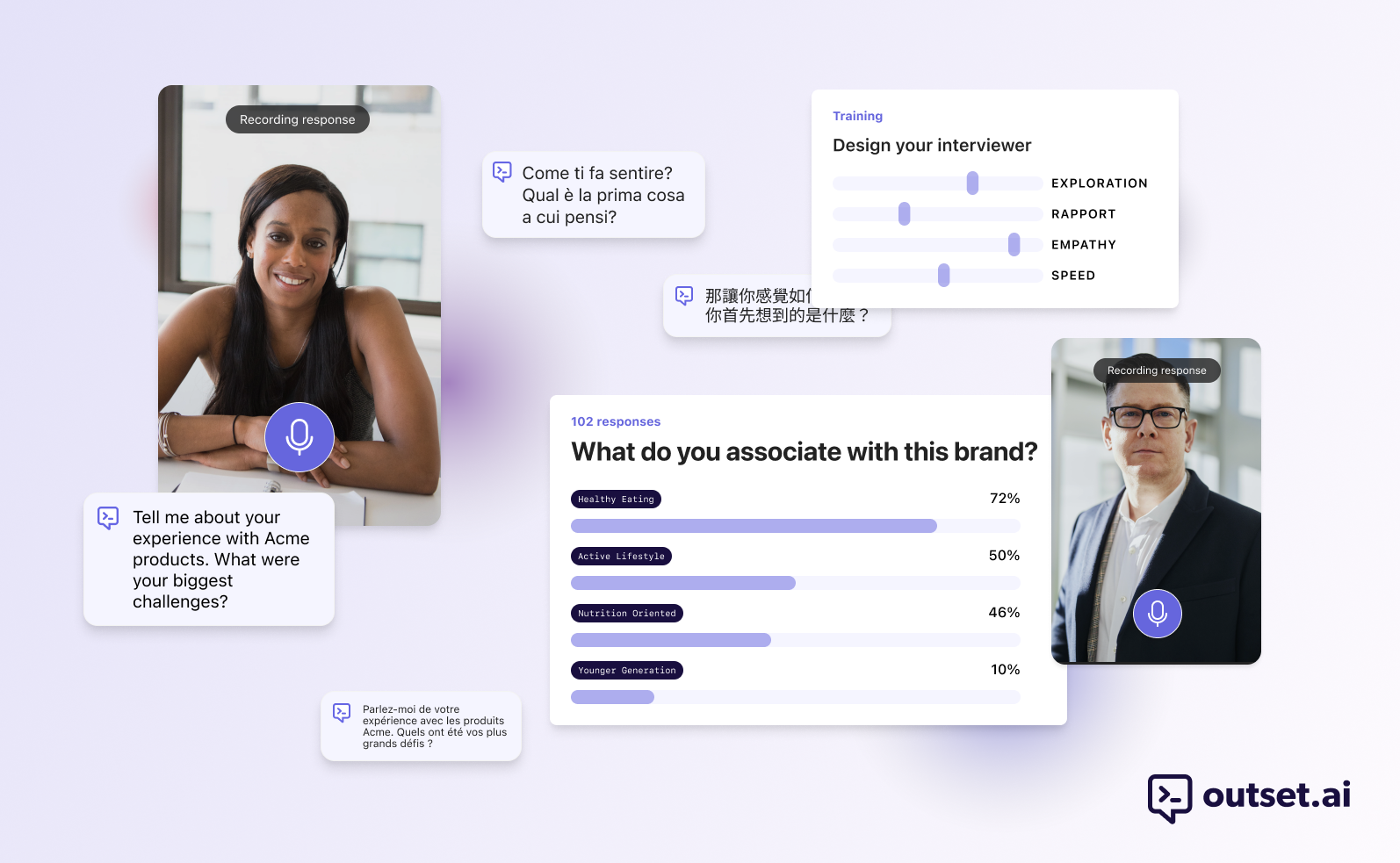Radical portfolio company Artificial Agency emerged from stealth last week with $16 million in capital to bring its behaviour engine to the video game market. The company’s generative AI technology allows game developers to create unscripted, fully dynamic, and real-time gameplay, delivering an entirely new experience to gamers.
Based in Edmonton, Alberta, the company was founded by University of Alberta and Google Deepmind alumni Andrew Butcher, Alex Kearney, Brian Tanner, and Michael Johanson. The team of over 20 people includes industry veterans who have led teams at Bioware, Improbable, Dell, Amazon, Unbroken Studios, and Stripe. They have collectively contributed to shipping many well-known games, including Dragon Age, Mass Effect, Call of Duty, Elder Scrolls, and FIFA.
Since the advent of modern computing, games and artificial intelligence have maintained a symbiotic relationship. Games, with their structured rules, have provided a testing ground and sandbox for technology including AI, continually pushing its boundaries. Two salient examples are the GPU, which started as the workhorse of graphics rendering that now powers modern deep learning, and Google DeepMind’s systems that progressively tackled more complex games, serving as proof of the technology’s advancing capabilities. In 2016, their AlphaGo system achieved a significant milestone by defeating the world’s top human players of the game Go. This cycle of innovation has, in turn, benefited the gaming industry, where AI methodologies have become integral to game design. AI now aids in world-building, plot development, and the refinement of game mechanics.
Artificial Agency’s vision for the behaviour engine integrates generative AI deeper in the gaming technology stack, giving AI agents the ability to take action in every facet of video game development and gameplay. We are excited to partner with this exceptional team as they create an entirely new category within the $225 billion global video game industry.
AI News This Week
-
These AI Models are pretty mid. That’s why companies love them (Wall Street Journal)
Companies are increasingly deploying smaller and midsize generative AI models. Unlike foundation models with over a trillion parameters, smaller models are trained on less data and designed for specific tasks, making them ideal for narrow, repetitive use cases such as document classification. Enterprise customers like TD Bank are increasingly favoring the cost-efficiency and practicality provided by mid-size models like those provided by Radical portfolio company Cohere for use cases such as analyzing voice data in call centers. The trend reflects a need to manage costs as companies scale up their AI deployments.
-
AI predicts tipping points before they happen (The Economist)
Researchers have developed AI models that can accurately predict tipping points in complex systems, such as financial markets and ecosystems, before they occur. Utilizing machine-learning algorithms, the team reduced complex systems to networks of interacting nodes, training the models with theoretical systems where tipping points are known. This breakthrough could buy valuable time for real-world situations such as floods and power outages. Companies such as Radical Ventures portfolio company, ClimateAi, have been transforming businesses’ ability to make both short and long-term decisions with confidence in various fields, from climate to epidemiology and finance.
-
How Wall Street needs to adapt to AI (Financial Times)
Macroeconomics, accounting and statistics are the three pillars of investment. Large language models get top scores in advanced exams of these subjects. We also know that LLM’s can summarize vastly more context and crowd wisdom than a human can, which should be very helpful for macro investment strategies. In this opinion piece, Juan Luis Perez, former global head of research at Morgan Stanley, acknowledges the human limitations in trusting automated systems and makes the case for the financial sector to better integrate AI’s insights with human judgment for better financial decision-making.
-
The AI-Powered future of coding is near (Wired)
A new generation of AI assistants is emerging, capable of not only writing code but also debugging, organizing, and critiquing it. Tools like “Solver” from Radical portfolio company Laredo Labs complete repository-level tasks directly from natural instructions, significantly improving developer productivity. This evolution follows the success of AI tools like GitHub Copilot, which enhances coding productivity by auto-completing code and offering improvement suggestions. This trend indicates that AI agents will soon become essential in software development, significantly transforming the coding landscape and increasing developer efficiency.
-
Artificial consciousness: A perspective from the free energy principle (PhilArchive)
A new study examines the possibility of consciousness in artificial systems, focusing on ruling out scenarios where AI appears conscious without actually being so. Using the free energy principle, the study highlights that while some information processes of living organisms can be simulated by computers, the causal structure differences between brains and computers may be crucial for consciousness. This approach aims to prevent the inadvertent creation of artificial consciousness and mitigate deception by seemingly conscious AI.
Radical Reads is edited by Ebin Tomy (Analyst, Radical Ventures)





